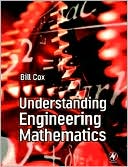Category Books
- Fiction Books & Literature
- Graphic Novels
- Horror
- Mystery & Crime
- Poetry
- Romance Books
- Science Fiction & Fantasy
- Thrillers
- Westerns
- Ages 0-2
- Ages 3-5
- Ages 6-8
- Ages 9-12
- Teens
- Children's Books
- African Americans
- Antiques & Collectibles
- Art, Architecture & Photography
- Bibles & Bible Studies
- Biography
- Business Books
- Christianity
- Computer Books & Technology Books
- Cookbooks, Food & Wine
- Crafts & Hobbies Books
- Education & Teaching
- Engineering
- Entertainment
- Foreign Languages
- Game Books
- Gay & Lesbian
- Health Books, Diet & Fitness Books
- History
- Home & Garden
- Humor Books
- Judaism & Judaica
- Law
- Medical Books
- New Age & Spirituality
- Nonfiction
- Parenting & Family
- Pets
- Philosophy
- Political Books & Current Events Books
- Psychology & Psychotherapy
- Reference
- Religion Books
- Science & Nature
- Self Improvement
- Sex & Relationships
- Social Sciences
- Sports & Adventure
- Study Guides & Test Prep
- Travel
- True Crime
- Weddings
- Women's Studies
Understanding Engineering Mathematics »

Authors: Bill Cox
ISBN-13: 9780750650984, ISBN-10: 0750650982
Format: Paperback
Publisher: Elsevier Science
Date Published: October 2001
Edition: (Non-applicable)
Author Biography: Bill Cox
Book Synopsis
* Unique interactive style enables students to diagnose their strengths and weaknesses and focus their efforts where needed
* Ideal for self-study and tutorial work, building from an initially supportive approach to the development of independent learning skills
* Free website includes solutions to all exercises, additional topics and applications, guide to learning mathematics, and practice material
Students today enter engineering courses with a wide range of mathematical skills, due to the many different pre-university qualifications studied. Bill Cox's aim is for students to gain a thorough understanding of the maths they are studying, by first strengthening their background in the essentials of each topic. His approach allows a unique self-paced study style, in which students Review their strengths and weaknesses through self-administered diagnostic tests, then focus on Revision where they need it, to finally Reinforce the skills required.
The book is structured around a highly successful 'transition' maths course at Aston University which has demonstrated a clear improvement in students' achievement in mathematics, and has been commended by QAA Subject Review and engineering accreditation reports.
A core undergraduate text with a unique interactive style that enables students to diagnose their strengths and weaknesses and focus their efforts where needed Ideal for self-paced self-study and tutorial work, building from an initially supportive approach to the development of independent learning skills Lots of targeted examples and exercises
Table of Contents
Number and arithmetic; Algebra; Functions and series; Exponential and logarithm functions; Geometry of lines, triangles and circles; Trigonometry; Coordinate geometry; Techniques of differentiation; Techniques of integration; Applications of differentiation and integration; Vectors; Complex numbers; Matrices and determinants; Analysis for engineers limits, sequences, iteration and all that; Ordinary differential equations; Functions of more than one variable partial differentiation; An appreciation of transform methods; Index.
Subjects
 Engineering Mathematics & Design
Engineering Mathematics & Design  Engineering mathematics
Engineering mathematicsEngineering
 Engineering Mathematics & Design
Engineering Mathematics & Design  Engineering mathematics -> Problems, exercises, etc.
Engineering mathematics -> Problems, exercises, etc.Science & Nature
 All Science & Nature
All Science & Nature  Mathematics
MathematicsStudy Guides & Test Prep
 Civil Service & Employment Tests
Civil Service & Employment Tests  Engineering - Employment Tests
Engineering - Employment TestsNonfiction
 Science & Nature
Science & Nature  Mathematics
MathematicsNonfiction
 Science & Nature
Science & Nature  All Science & Nature
All Science & NatureEducation & Teaching
 Study Guides & Test Prep
Study Guides & Test Prep  Civil Service & Employment Tests
Civil Service & Employment TestsReference
 Study Guides & Test Prep
Study Guides & Test Prep  Civil Service & Employment Tests
Civil Service & Employment Tests
